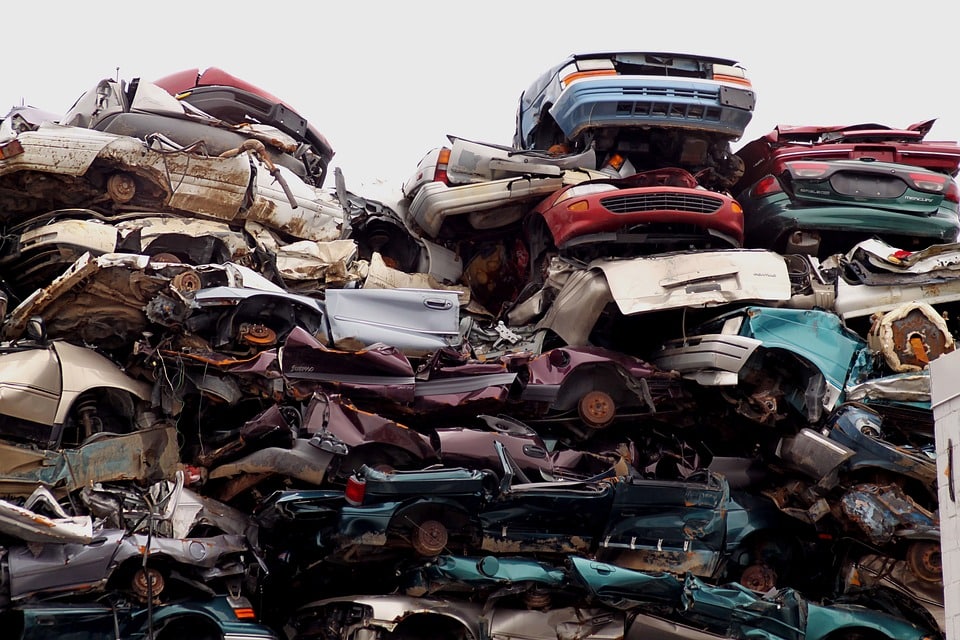Automakers have agreed with the government’s proposal of incentivizing scrapping of old vehicles. The government had proposed the scrappage policy to push away old vehicles from the roads. Its aimed at phasing-out the old vehicles which only end up massively polluting the environment.
The government is also likely to exempt new vehicles from registration fees and road tax if the owner scraps the old one. Automakers had agreed to offer a one per cent rebate on new vehicles on scrappage of the old one, but they don’t want this to come into effect immediately during this festive season, as they are still trying to navigate the shock brought about by the COVID-19 pandemic. An official said industry players want the policy to be deferred since they are not sure if they would be able to absorb the discount in the event of any post-festival fall in demand.
Scrappage Policy
The Minister for Road Transport, MSMEs Nitin Gadkari, earlier this year, had said the scrappage policy would become a reality and India could emerge as a hub for automobile manufacturing as key raw material available from scrapping steel, aluminium and plastic are bound to be recycled. He said it would bring down the automobile pricing by 20 to 30 per cent. According to an HDFC Bank study, the estimated market for vehicle scrappage and recycling is $6 billion. Ashok Khanna, head for auto finance at HDFC Bank, had said a comprehensive scrappage policy will result in reduction in costs, save foreign exchange and boost revenues in the long run. It stated that if the policy is defined well, nine million vehicles could go off road by fiscal 2021 and 28 million by 2025, largely comprising of two-wheelers. Moreover, it could reduce carbon dioxide emission by 17 per cent and cut particulate matter in the air by 24 per cent.
Under the yet to be implemented scrappage policy, owners with a commercial vehicle that is older than 15 years and private vehicles older than 20 years could be considered for scrapping. Its basically targeted at old vehicles that are in the end-of-life. If the policy does get drafted, it would mean that motorists can have carefree drives until the car is around 15 to 20 years old. And this is where the fitness certificate is important. The automated fitness certification test decides whether or not, the vehicle is fit to be driven on the roads without massive tailpipe emissions. If a vehicle fails the fitness test more than twice, it could be sent for scrapping. Reports highlight that no tax exemptions and incentives will be offered by the Center and the resale costs will have to be taken care of by the original equipment manufacturer. The government will take care of the process of scrapping, but the compensation will have to be provided by the manufacturers.
Also Read: Mercedes-Benz reiterates commitment to release 10 pure electric cars by 2022
Life Expectancy of Vehicles
Nowadays, consumers when leasing or purchasing a vehicle expect to drive it for a specific number of years. The extended lifespan of vehicles has influenced car buying decisions and the long term value of vehicles. Auto mechanics are of the opinion that improved quality is one reason why vehicles are lasting longer. Today’s vehicles are made of lightweight materials like high-strength steel, magnesium alloys, aluminum alloys, and carbon fiber etc. Most notedly, improvements to the internal combustion engine and computerized technology have led to better fuel economy and overall performance. Improved quality has allowed carmakers to extend the length of standard warranties on new and pre-owned vehicles, which provides car owners with added protection and peace of mind. When motorists perform recommended maintenance, such as oil changes, tune-ups and tire changes etc., their vehicles perform more efficiently and economically, and also last longer.
However, there is no way to tell how much longer one’s car will stay trouble free, as even with the best maintenance, a major part is going to fail. Most carmakers will agree on the fact that at 150,000 to 200,000 miles tend to be the mark for when vehicles begin to decline. A standard manufacturer’s warranty on new vehicles is three years and at least 60,000 km. Factory extended warranties are also available that provide consumers with safety and assurance for a longer period of time.
















Pingback: Maruti Suzuki sells over 2 lakh cars through its online sales platform | The Plunge Daily